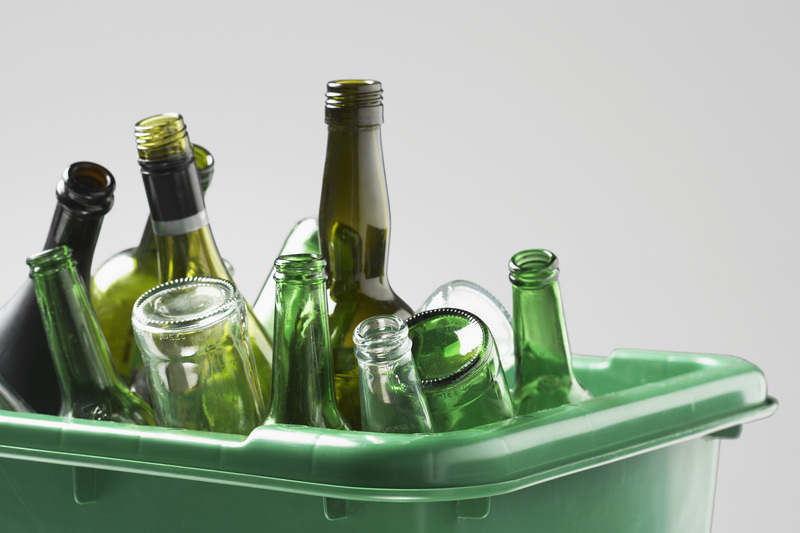Conservation
With the rise of global warming and the depletion of natural resources, it has become imperative for us to take action towards creating a greener and more sustainable future. Our actions today will have a lasting impact on the generations to come, which is why resource conservation has become more important than ever before. In this article, we will explore various ways in which we can create a greener legacy for the future through resource conservation.
Resource conservation refers to the responsible use and management of our natural resources such as water, air, land, and wildlife. These resources are essential for our survival and the well-being of our planet. However, with rapid industrialization and overconsumption, we are depleting these resources at an alarming rate. It is estimated that by 2050, the demand for resources will exceed Earth's capacity by three times.
Conserving our resources not only helps us ensure their availability for future generations but also has numerous other benefits. For instance, reducing energy consumption can lower our carbon footprint and slow down climate change. Similarly, preserving forests helps in regulating the water cycle and protecting biodiversity. By conserving resources, we can also save money on utility bills and decrease our dependence on non-renewable resources.
There are various ways in which we can practice resource conservation in our daily lives. One of the simplest ways is by reducing our energy consumption. This can include turning off lights when not in use, using energy-efficient appliances, and opting for renewable energy sources like solar power.
Another crucial aspect is water conservation. With increasing global water scarcity, it is essential to use this precious resource wisely. We can do this by fixing leaks, installing low-flow fixtures, and being mindful of how much water we use daily.
Reducing waste is also an important part of resource conservation. By recycling, composting, and opting for products with less packaging, we can reduce the amount of waste that ends up in landfills. This not only conserves natural resources but also reduces pollution and greenhouse gas emissions.
In addition to individual actions, there are also government policies and initiatives that promote resource conservation. These include setting limits on resource extraction, implementing sustainable land management practices, and investing in renewable energy sources.
Pros:
1. Sustainable Future: Resource conservation is crucial for a sustainable future, where our natural resources are preserved and used responsibly.
2. Cost Savings: Conserving resources can also help us save money on utility bills and other expenses.
3. Health Benefits: By reducing pollution and preserving biodiversity, resource conservation can have significant health benefits for both humans and wildlife.
4. Responsible Stewardship: Practicing resource conservation shows responsible stewardship towards the environment and sets an example for future generations.
Cons:
1. Initial Investment: Some conservation methods may require an initial investment, such as purchasing energy-efficient appliances or installing solar panels.
2. Limited Impact: While individual actions make a difference, true change requires collective efforts from governments and corporations.
3. Inconvenience: Adopting new habits or making changes to reduce consumption may be inconvenient for some individuals.
1. Educate yourself and others about the importance of resource conservation.
2. Make small changes in your daily routine such as turning off lights when not in use or using reusable bags instead of plastic ones.
3. Use environmentally-friendly products that are made from renewable materials.
4. Support companies that have sustainable practices and invest in eco-friendly options whenever possible.
5. Get involved in community-led initiatives to promote resource conservation.
1. Resource conservation is essential for creating a sustainable future for generations to come.
2. It involves responsible use and management of natural resources such as energy, water, and land.
3. Simple actions like reducing energy consumption, conserving water, and reducing waste can make a significant impact.
4. Government policies and initiatives play a crucial role in promoting resource conservation.
In conclusion, resource conservation is vital for creating a greener legacy for future generations. By practicing sustainable habits in our daily lives and advocating for government and corporate action, we can ensure the availability of resources for years to come. Let us all take responsibility for preserving our planet's resources and leaving behind a better world for the generations that will follow us. After all, it is the only home we have.
With the rise of global warming and the depletion of natural resources, it has become imperative for us to take action towards creating a greener and more sustainable future. Our actions today will have a lasting impact on the generations to come, which is why resource conservation has become more important than ever before. In this article, we will explore various ways in which we can create a greener legacy for the future through resource conservation.
The Importance of Resource Conservation
Resource conservation refers to the responsible use and management of our natural resources such as water, air, land, and wildlife. These resources are essential for our survival and the well-being of our planet. However, with rapid industrialization and overconsumption, we are depleting these resources at an alarming rate. It is estimated that by 2050, the demand for resources will exceed Earth's capacity by three times.
Conserving our resources not only helps us ensure their availability for future generations but also has numerous other benefits. For instance, reducing energy consumption can lower our carbon footprint and slow down climate change. Similarly, preserving forests helps in regulating the water cycle and protecting biodiversity. By conserving resources, we can also save money on utility bills and decrease our dependence on non-renewable resources.

Ways to Conserve Resources
There are various ways in which we can practice resource conservation in our daily lives. One of the simplest ways is by reducing our energy consumption. This can include turning off lights when not in use, using energy-efficient appliances, and opting for renewable energy sources like solar power.
Another crucial aspect is water conservation. With increasing global water scarcity, it is essential to use this precious resource wisely. We can do this by fixing leaks, installing low-flow fixtures, and being mindful of how much water we use daily.
Reducing waste is also an important part of resource conservation. By recycling, composting, and opting for products with less packaging, we can reduce the amount of waste that ends up in landfills. This not only conserves natural resources but also reduces pollution and greenhouse gas emissions.
In addition to individual actions, there are also government policies and initiatives that promote resource conservation. These include setting limits on resource extraction, implementing sustainable land management practices, and investing in renewable energy sources.
The Pros and Cons of Resource Conservation
Pros:
1. Sustainable Future: Resource conservation is crucial for a sustainable future, where our natural resources are preserved and used responsibly.
2. Cost Savings: Conserving resources can also help us save money on utility bills and other expenses.
3. Health Benefits: By reducing pollution and preserving biodiversity, resource conservation can have significant health benefits for both humans and wildlife.
4. Responsible Stewardship: Practicing resource conservation shows responsible stewardship towards the environment and sets an example for future generations.
Cons:
1. Initial Investment: Some conservation methods may require an initial investment, such as purchasing energy-efficient appliances or installing solar panels.
2. Limited Impact: While individual actions make a difference, true change requires collective efforts from governments and corporations.
3. Inconvenience: Adopting new habits or making changes to reduce consumption may be inconvenient for some individuals.
Tips for Effective Resource Conservation
1. Educate yourself and others about the importance of resource conservation.
2. Make small changes in your daily routine such as turning off lights when not in use or using reusable bags instead of plastic ones.
3. Use environmentally-friendly products that are made from renewable materials.
4. Support companies that have sustainable practices and invest in eco-friendly options whenever possible.
5. Get involved in community-led initiatives to promote resource conservation.

Key Takeaways
1. Resource conservation is essential for creating a sustainable future for generations to come.
2. It involves responsible use and management of natural resources such as energy, water, and land.
3. Simple actions like reducing energy consumption, conserving water, and reducing waste can make a significant impact.
4. Government policies and initiatives play a crucial role in promoting resource conservation.
Conclusion
In conclusion, resource conservation is vital for creating a greener legacy for future generations. By practicing sustainable habits in our daily lives and advocating for government and corporate action, we can ensure the availability of resources for years to come. Let us all take responsibility for preserving our planet's resources and leaving behind a better world for the generations that will follow us. After all, it is the only home we have.


